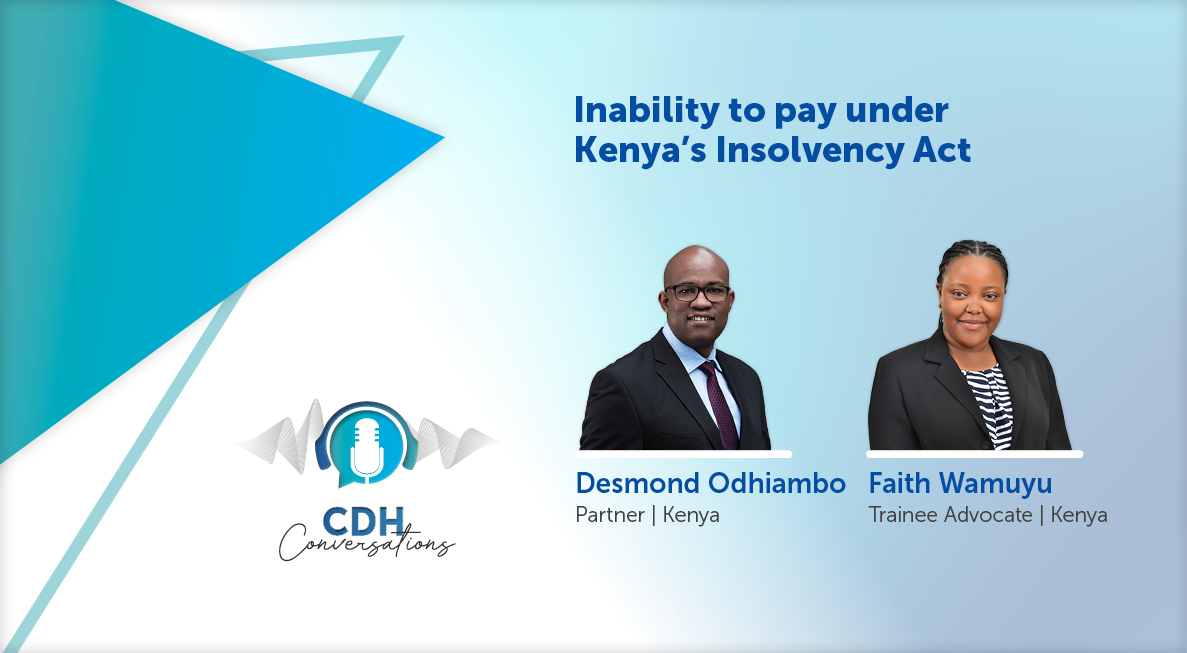Compliance certificates when leasing a property
At a glance
- Property-related compliance certificates are legal requirements when owning and transferring a property, however, we often tend to overlook compliance certificates in the context of leasing a property and, in particular, the risk that the tenant may face by not being in possession of certain compliance certificates when leasing a property.
- A landlord or owner of a property should generally be in possession of the aforementioned certificates and, as such, it is prudent for a tenant to request copies of such certificates at the commencement of the lease.
- A tenant of a property may be at risk of incurring liabilities in the event that it is not in possession of some of these certificates.
However, we often tend to overlook compliance certificates in the context of leasing a property and, in particular, the risk that the tenant may face by not being in possession of certain compliance certificates when leasing a property.
Electrical compliance certificates
The Electrical Installation Regulations (issued under the Occupational Health and Safety Act 85 of 1993) impose a positive obligation on landowners and users of a property to manage the safety risks related to electrical installation. In terms of Regulation 2 of the Electrical Installation Regulations, a user or lessor of an electrical installation, as the case may be, is responsible for the safety, safe use and maintenance of the electrical installation, which is being used.
Where there is a written undertaking between a landowner and a tenant whereby the responsibility for an electrical installation has been transferred to the tenant, then the tenant shall be responsible for the electrical installations of the leased premises (for example, where a lease agreement provides that the tenant shall be liable for the upkeep and maintenance of all electrical installations on the leased premises).
Without a valid electrical certificate of compliance, should an injury or incident occur, the responsible user could be held liable and the insurance in respect of the property could be declared invalid.
As such, it is important for a tenant to request a copy of the current electrical certificate of compliance from the landlord upon commencement of a lease (or an updated electrical certificate of compliance in the event that any additions or alternations have been made to the existing installations).
Zoning certificates and title conditions
Our law provides that a property’s title deed restrictions or conditions will take precedence over the municipal zoning of a property. For example, where a property is zoned for commercial use but the title deed contains a restrictive condition providing that the property may only be used for residential purposes, then notwithstanding the zoning of the property for commercial use, the restrictive title deed condition could be enforced.
The use of a property contrary to its permitted use (either by way of zoning or title restrictions) may invalidate the lease.
As such, it is important to verify that the property being leased is correctly zoned for the purposes for which it is intended to be used, as well as to check that the title deed of the property does not contain any restrictions contrary to the zoning. This can be done by requesting a copy of the zoning certificate and a copy of the title deed from the landlord.
Occupancy certificates
In terms of the National Building Regulations and Building Standards Act 103 of 1977 (NBRBS Act), an occupancy certificate must be obtained by the owner or landlord once construction of the property is complete. The tenant may assume that a valid occupancy certificate has been issued and may request a copy thereof from the landlord.
In some instances, where the lease permits the tenant to undertake installations on the leased premises, an occupancy certificate may need to be obtained during the lease period.
Some of the risks associated with not having an occupancy certificate are outlined below.
Offence
In terms of section 14(4)(a) of the NBRBS Act, the owner of a building or any person having an interest therein who occupies or uses such building or permits the occupation or use of such building shall, unless a certificate of occupancy has been issued, be guilty of an offence. Arguably, persons found guilty of an offence under section 14(4)(a) would therefore not only include an
owner, but also tenants of a building.
Interdicts
Local authorities have in the past been successful in applying for interdicts based on, inter alia, the failure to comply with section 14(4) of the NBRBS Act. It may be difficult to oppose an application for an interdict or apply for the suspension thereof in such circumstances, since failure to comply with the NBRBS Act amounts to a criminal offence.
Lending institutions
Lending institutions may require proof of a certificate of occupancy in respect of a leased premises prior to extending any finance in respect thereof.
Insurance
Depending on the nature of a claim in respect of a property, it is possible that an insurer may repudiate a claim based on the fact that the property has not been issued with a certificate of occupancy.
Loss of income and security of tenure
If a local authority issues a compliance notice to a landlord under section 14 of the NBRBS Act, or alternatively applies for an interdict prohibiting the use of any such property, the landlord may be obliged to halt the occupation or use of the premises. This could have material consequences, including inter alia, loss of income and security of tenure.
Third party liability claims
To obtain a certificate of occupancy, a local authority must be furnished with certain compliance certificates, including an electrical certificate of compliance, fire compliance certificate, structural engineer’s certificate and plumbing inspector’s certificate, among others. The occupancy certificate generally confirms that the property complies with local building and health and safety regulations and by-laws. Claims for loss of life, injury or property damage may arise from structural, electrical or fire-related issues resulting from non-compliance with building standards set out in the NBRBS Act.
Other certificates
Other certificates of which a tenant should request copies from the landlord upon the commencement of a lease include:
- Gas certificate of conformity: For any gas installations on the leased property. An updated gas certificate would need to be obtained in the event that any changes or alterations are made to the property (for example, should the tenant have installed a gas stove, then a new gas certificate would need to be obtained).
- Fire safety certificate: The landlord has a general duty to ensure that the property meets fire safety standards and that a fire service certificate is obtained annually for non-residential buildings. However, the lease agreement should detail which party is responsible for maintaining the fire safety equipment during the lease period and obtaining the annual fire service certificate.
- Wood Borer Certificate: This certificate is particularly relevant for properties in coastal areas, where a Wood Borer Certificate (also known as a “Wood Destroying Organism” or “WDO” certificate) is often required to ensure that the property is free from wood-destroying insects such as termites and wood borers.
- Water compliance certificate: This is only applicable to properties that are situated within the jurisdiction of the City of Cape Town Municipality. The Cape Town Water By-Law provides that the owner/landlord of the property must have a valid water compliance certificate. This certificate is valid until/unless changes/alterations are made to the plumbing of a property or if there is a change in ownership of property. Thus, in the event of the tenant changing or altering the plumbing, a new water compliance certificate would need to be obtained.
Conclusion
A landlord or owner of a property should generally be in possession of the aforementioned certificates and, as such, it is prudent for a tenant to request copies of such certificates at the commencement of the lease.
A tenant of a property may be at risk of incurring liabilities in the event that it is not in possession of some of these certificates.
In addition, the lease agreement concluded between the landlord and tenant should clearly specify which party is liable for the upkeep and maintenance of the items covered by these certificates and for obtaining updated compliance certificates (as necessary).
The information and material published on this website is provided for general purposes only and does not constitute legal advice. We make every effort to ensure that the content is updated regularly and to offer the most current and accurate information. Please consult one of our lawyers on any specific legal problem or matter. We accept no responsibility for any loss or damage, whether direct or consequential, which may arise from reliance on the information contained in these pages. Please refer to our full terms and conditions. Copyright © 2026 Cliffe Dekker Hofmeyr. All rights reserved. For permission to reproduce an article or publication, please contact us cliffedekkerhofmeyr@cdhlegal.com.
Subscribe
We support our clients’ strategic and operational needs by offering innovative, integrated and high quality thought leadership. To stay up to date on the latest legal developments that may potentially impact your business, subscribe to our alerts, seminar and webinar invitations.
Subscribe




